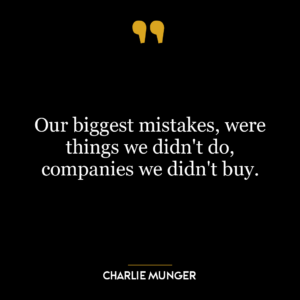This quote by Confucius emphasizes the importance of acknowledging and rectifying errors. It suggests that a mistake remains a mistake only if it is not corrected. By this logic, an uncorrected mistake is a persistent error, a continuous flaw that could lead to bigger problems. On the other hand, a corrected mistake becomes a lesson learned, a stepping stone towards improvement.
At its core, this quote is about self-improvement and growth. It encourages us to own up to our mistakes, learn from them, and make necessary changes. This is crucial in personal development because it promotes self-awareness, responsibility, and resilience. It reminds us that making a mistake is not the end of the world, but refusing to correct it might as well be.
In today’s world, this quote is highly applicable. In the era of rapid technological advancements and social media, mistakes can be amplified and scrutinized. However, it also provides opportunities for learning and growth. For instance, a company that releases a flawed product can use the feedback to improve and innovate. A person who posts an insensitive comment online can learn from the backlash and become more empathetic and considerate.
Moreover, this quote can be seen as a call to action against complacency. It warns us against the dangers of ignoring our faults and the potential growth that comes with correcting them. It pushes us to strive for better, to continuously improve, and to never settle for mediocrity.
In personal development, this idea can be applied in various ways. It encourages introspection and self-critique, pushing us to constantly evaluate our actions and decisions. It promotes a growth mindset, where mistakes are not seen as failures, but as opportunities for learning and improvement. This mindset can lead to increased resilience, adaptability, and overall personal growth.
In conclusion, Confucius’s quote is a timeless reminder of the importance of acknowledging and correcting our mistakes for continuous growth and improvement. It is a call to action that is as relevant today as it was thousands of years ago.







